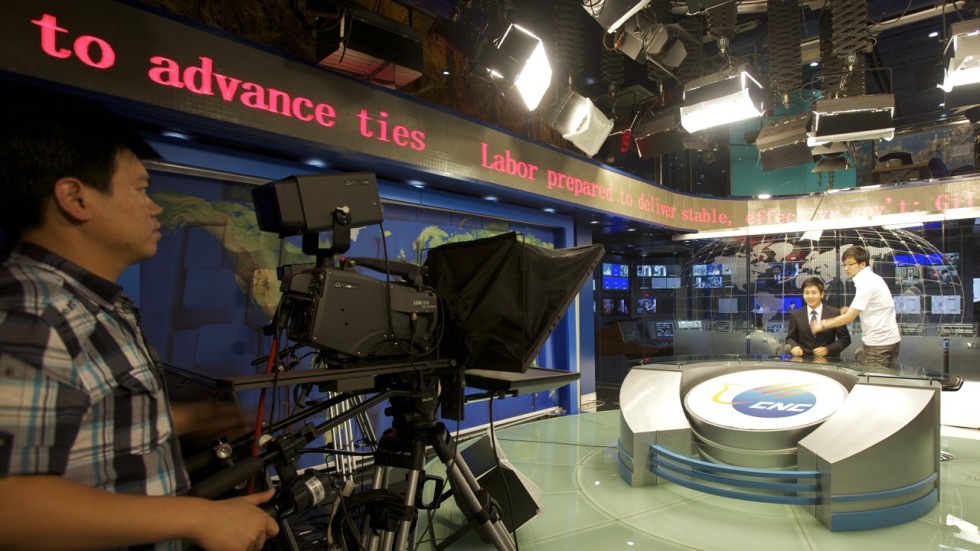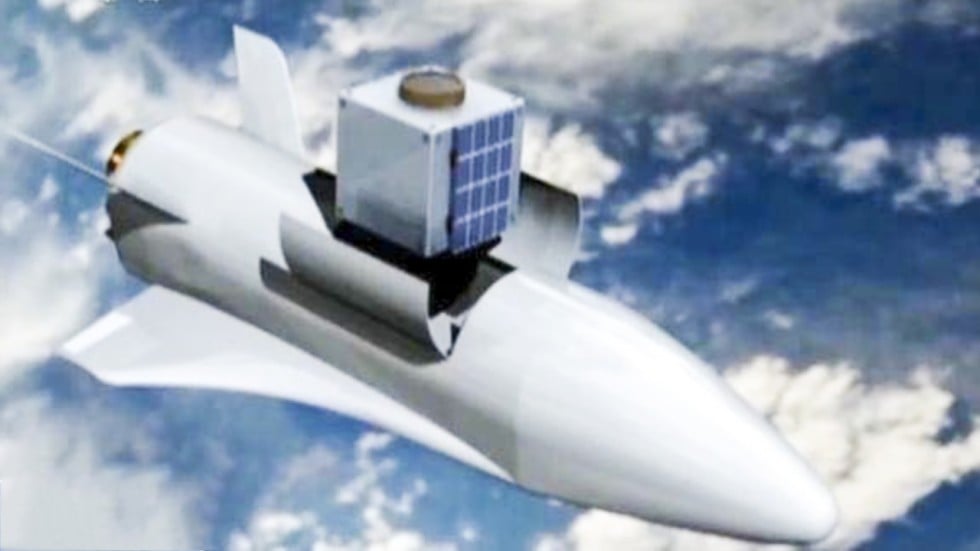
https://youtu.be/yqodKOkWRYQ
https://youtu.be/dYVLW5DjBjA
Huawei CFO has strong arguments in extradition case: Canadian diplomat
https://youtu.be/jB_OVG3c1DI
https://youtu.be/ztu32BnhPj4
https://youtu.be/ln_asabsHLI
FM urges Canada to make right choice
China urged Canada to "make the right choice" on Thursday, after Canada's ambassador to China John McCallum reportedly said the Huawei executive arrested in Vancouver at the request of the US has a strong case to fight extradition.
"Any one with normal judgment can see the nature of the incident, and we hope the Canadian side makes the right choice and not to 'pull someone's chestnuts out of the fire,'" Foreign Ministry spokesperson Hua Chunying said at a daily briefing on Thursday.
Hua's remark comes after McCallum told reporters earlier this week that Huawei's chief finance officer Meng Wanzhou has a "strong case" to fight an extradition request.
"I think she has quite good arguments on her side," said McCallum, CNN reported.
"One, political involvement by comments from US President Donald Trump in her case. Two, there's an extraterritorial aspect to her case; and three, there's the issue of Iran sanctions which are involved in her case, and Canada did not sign on to these sanctions."
Echoing McCallum, Huang Feng, director of Beijing Normal University's Institute for International Criminal Law, noted that the US extradition request has no merit as it does not follow the basic extradition principle of double criminality.
Double criminality states that a suspect could be extradited only if similar laws one breaks exist in the extraditing country. However, Canada has no such sanctions, said Huang.
Analysts stressed that even if the US files an extradition request at the last minute, it does not mean Meng would be extradited to the US, noting that every side has to weight their choice.
Such a request has to be reviewed and approved by Canada's judicial department and local court, and though Canada's judicial departments are unlikely to refuse the extradition, Huawei's legal teams could exhaust every means of judicial remedy in Canada to stop the extradition.
The US government alleges that Meng helped Huawei dodge US sanctions on Iran and has indicated it will file a formal extradition request by the January 30 deadline, CNN reported Thursday.
Wu Xinbo, director of Fudan University's Center for American Studies, told the Global Times that if Canada does agree to extradite Meng to the US in the worst scenario, bilateral ties will face unprecedented challenges.
The extradition will cause "downgraded diplomatic relations" between China and Canada, Wu said.
It will set a precedent of enterprises facing the harshest legal punishment for alleged misconduct they are charged of in a foreign country, said Wu.
US enterprises may face similar consequences in China, he said.
The current status of China-Canada relations does have a huge impact on bilateral exchanges and cooperation, but China is not responsible for that, Hua said.
The Canadian side has to take China's concerns seriously and correct its mistakes to change the situation, she said.
US extradition mirrors Iran sanctions: just don't have law on their side' on Huawei case
The US request to extradite Huaiwei Chief Financial Officer Meng Wanzhou goes against international law and mirrors its unilateral sanctions on Iran, which is opposed by the international community, Chinese Foreign Ministry said Wednesday.
The US extradition request mirrors US sanctions on Iran. However, as everyone knows, Huawei has repeatedly stated its compliance with all applicable laws and regulations of the countries in which it operates, said Hua Chunying, spokesperson of China's Ministry of Foreign Affairs.
Hua noted that China opposes unilateral US sanctions against Iran outside the UN Security Council framework. The sanctions are not in conformity with international law and have met with international opposition, including US ally Canada,she said.
Hua's comments came after the US Justice Department said on Tuesday it would continue to pursue the extradition of Meng and would meet all deadlines set by the US-Canada Extradition Treaty, Reuters reported, citing a statement released by US Justice Department spokesman Marc Raimondi.
Huang Feng, director of Beijing Normal University's Institute for International Criminal Law, told the Global Times this accusation is farfetched because she was allegedly accused of bank fraud at HSBC, a UK-based banking giant, not a US one, and Meng's activities were outside the US.
Canada's Department of Justice said an individual can be extradited if the alleged activity in question is recognized as a criminal in both countries.
Huang said that the extradition request cannot be passed by Canada unless the US offers solid evidence to prove that Meng violated the laws of Canada and the US.
The US action goes against international law and is unjustified, said Hua, noting that it is part of the country's political agenda to bully Chinese hi-tech firms and contain China's rightful development.
Huang also noted he found it strange that the Canadian ambassador announced the US request before the US formally send its extradition request. "Normally, none would publish relevant information unless it's formalized. So it seems like Canada is bluffing."
Ren Zhengfei, Meng's father and Huawei founder, said in an interview with foreign media on January 15, "I trust that the legal systems of Canada and the United States are open, just, and fair, and will reach a just conclusion," Ren said, according to a transcript Huawei released to media.
Meng case to further complicate China-Canada-US ties
Editor's Note:
The US has reportedly said to formally seek extradition of Huawei's Chief Financial Officer Meng Wanzhou. Since Meng was arrested on December 1 in Vancouver, the deadline for the US to file a formal extradition request is 30 January, 60 days after the arrest. What is the implication of Washington's move? How will it influence China-US-Canada relations? Global Times sought the opinion of two experts on the issue.
Li Haidong, professor with the Institute of International Relations at China Foreign Affairs University
US President Donald Trump has been deeply troubled by the government shutdown and the Russiagate investigation
As the deadline nears, Washington may be too busy coping with the shutdown chaos to consider Meng's case and make the formal extradition request. Ottawa is urging Washington to take the action.
Extradition is a strict cooperative law enforcement process between two jurisdictions. The US' filing a request does not mean that Canada must immediately send Meng to the US. Canada has to conduct a judicial review procedure to weigh the request, during which Meng's appeal will also be taken into account.
At least in the legal sense, if Meng's appeal is credible and convincing enough, there is a good chance that Ottawa would hesitate to transfer her to Washington.
Nonetheless, it should be noted that Meng's case is political in the garb of a legal procedure. If law is the only factor to be considered, I believe Meng will win the lawsuit; but when the political factors come into play, there would be increased uncertainty.
Meng's case is a long-running battle. As long as it is not resolved, it would be tough to iron out China-US-Canada relations.
Washington is unwilling to see any of its allies strengthening relations with Beijing, but China-Canada ties should not be affected by the Meng incident. Canada should abandon its role as a US puppet to sully China's image. The right thing for Ottawa to do is to immediately correct the mistake.
Chen Hongqiao, researcher at Guangdong University of Foreign Studies
Washington tends to make important decisions at the eleventh hour. It is used to taking a wait-and-see approach toward the two or more sides of the game, and then determine what measures to take.
In Meng's case, the US has its own strategic requirement. It needs to observe the interaction between China and Canada to make up its mind. If China takes a tough stance, the US would act prudently. If Canada requires support, the US will provide it.
Chinese Vice Premier Liu He will visit the US on January 30 and 31 for the next round of US-China trade negotiations. The US may proceed to file a formal extradition request for Meng just days before Liu's visit as a leverage to exert pressure on Beijing to pursue its interests in the trade talks. But the US side will not bring it up during the negotiations with Beijing.
According to Reuters, US President Donald Trump stated he would intervene in the Justice Department case against Meng if it is in US national security interest and US-China trade talks. His words signal that before Meng is extradited, he could apply the president's diplomatic prerogative to intervene. The US has a system of separation of powers and its judiciary branch is independent. If Meng is extradited to the US, it would be difficult for Trump to exercise his influence.
Canada claims to be a country with the rule of law, and will deal with the US request based on laws and will not hand over Meng without careful consideration. In fact, Ottawa has been disappointed with Washington, complaining that the US is competing with China at the expense of Canada. On the surface, Meng's incident is a legal issue, but politics and diplomacy play an important role.
Prepare for protracted game over Meng
The US Department of Justice confirmed on Tuesday that it will "meet all deadlines" to seek extradition of Huawei Chief Financial Officer Meng Wanzhou, signaling an extraordinarily high probability of the US filing a formal extradition request before January 30.
Washington's move will undoubtedly further intensify the dispute between the US and China over Meng's case. China must not bear any illusion and should prepare for more complicated games.
The Chinese government and media should continue to disclose and condemn that Washington and Ottawa have violated the basic legal spirit. Their sophistry must bear diplomatic and public pressure, and not to be left unimpeded in the international arena, as if Huawei did commit serious crimes.
Arresting Meng is obviously part of the US actions to crack down on Huawei. Anyone with a brain can clearly see Washington's intention to stop rising Chinese high-tech companies in the name of the law.
One thing should be made very clear: If Ottawa successfully assists Washington in the extradition of Meng, Beijing will retaliate against both of them without doubt.
The US' official request for extradition does not mean an immediate transfer of Meng. The Canadian court will then have a month to hear the US evidence and weigh the request before making judgment. Meng can also defend herself and appeal. This process may last a few months, or even years.
As a private company, Huawei is incapable of confronting the US and Canada's national system, but it can do its best to prolong the extradition process at most.
There has been a political purpose from the very beginning when news of Meng's case broke. Since Washington and Ottawa have vowed to declare that this is a 100 percent legal procedure, this political persecution must be strictly tested by their legal system.
Ottawa is stuck in the middle of Washington and Beijing, and involved in the whirlpool of geopolitical disputes. Being a US puppet is not easy. Canada may realize that it bears the blame for its ally. Its emphasis on acting by law is only a self-spiritual support in the current predicament.
Canadian public opinion is sensitive to any evidence of political persecution in this case, which can provide a potential favorable factor for Meng's defense and appeal.
Canada is a legal state under normal circumstances, and especially attaches importance to procedures and evidence. Although disguised as legal procedure, Meng's case, a case of injustice, is bound to have loopholes. Huawei has already shown its confidence in the upcoming litigation process.
China-US ties may also undergo certain subtle changes at any time which might dilute US political motives for persecuting Meng. We should never abandon such hope.
Meng's case has set an execrable precedent. Beijing's reaction will shape the world's understanding of China's national strength and will. Beijing must not be furious or cowardly.
We should take corresponding actions step by step in resolute and orderly manner, and show the world that Chinese are with reason and with restraint.
Any countries and forces that persecute Chinese citizens and infringe on China's interests will pay a heavy price. Global Times
Related posts:
Ren Zhengfei, founder and chief
executive officer of Huawei Technologies Co., speaks during an
interview at the company's headq...
Related:
The Point: Is a Chinese-made subway new victim of espionage hysteria?
https://youtu.be/WbsOkFUXhD0
Related:
Resignation reveals political interference
Ottawa is now as sensitive as a frightened bird. A few words by the ambassador should not have posed any impact on court decisions. Nonetheless, judging from the reactions of many politicians and journalists in Canada, McCallum's remarks are like a dreadful monster.Canadian envoy's apology shows 'political correctness' subverts rule of law
Canadian Ambassador to China John McCallum admitted on Thursday that he misspoke on the case of Huawei CFO Meng Wanzhou by suggesting that she had a strong case to fight extradition to the US.5G competition a new arms race?
It's hard to accurately understand the potential of 5G technology and its significance nowadays. More imagination should be encouraged. However, referring to 5G competition as an arms race and attaching so much importance to the dominance of the technology is typical American thinking.Huawei unveils core 5G chipset, secured 30 5G commercial contracts worldwide
China's Huawei Technologies launched the world's first core
chip specifically designed for 5G base stations on Thursday in Beijing,
securing its leading position for 5G deployments in spite of political
pressure.
The Point: Is a Chinese-made subway new victim of espionage hysteria?
https://youtu.be/WbsOkFUXhD0


























